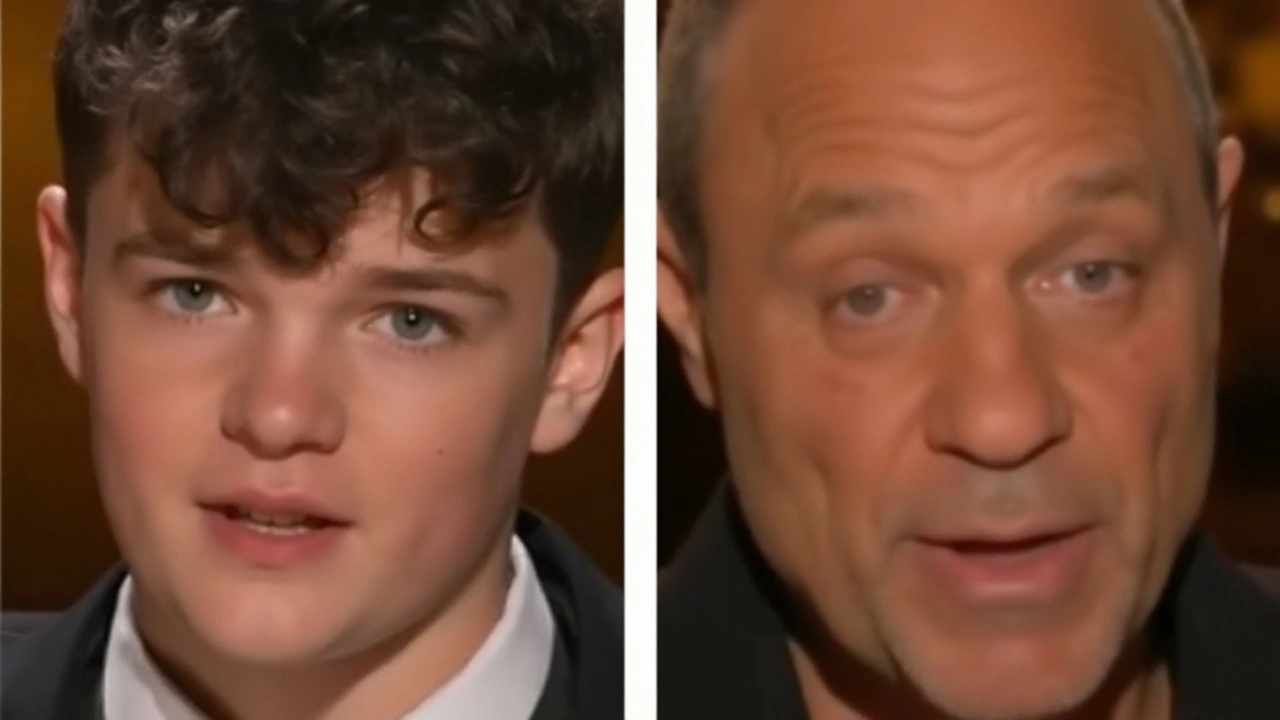A record that resets expectations
The number to remember is 15. That’s the age at which Owen Cooper walked off the 2025 Emmy stage with a trophy, becoming the youngest male acting winner in the awards’ history. His win for Adolescence wasn’t just a personal breakthrough—it pushed the Emmys deeper into an era where teen-led shows sit at the center of TV’s conversation.
The Emmys have long been a showcase for established names. Teen nominees pop up every few years, but victories are rare, especially for boys. Cooper now sits in a small group of teenage Emmy winners. It doesn’t happen often. That’s why the moment landed with such force: a young lead from a youth-focused series claimed one of TV’s most coveted acting honors.
Adolescence has been a breakout this season—a show built around the highs, mistakes, and quiet tension of being young. The series rode strong word of mouth, drew a dedicated fan base, and proved that a teen coming-of-age story can carry prestige hardware. On a night full of big names, the show felt like the insurgent pick that earned its place.
If you sense the industry has been moving in this direction, you’re not wrong. Over the past few years, youth-driven titles have dominated watch lists and streaming chatter. Wednesday and Stranger Things showed there’s huge demand for teen-centered stories that treat young characters with depth instead of clichés. Cooper’s win validates that shift at the top of the awards ladder, not just in audience metrics.
It also speaks to what’s changed inside writers’ rooms and casting offices. Younger leads aren’t just “the kid in the ensemble” anymore. They’re carrying difficult arcs, anchoring entire seasons, and sitting at the core of shows that adults watch too. The rise of streaming gave those stories room to breathe—shorter seasons, faster greenlights, and a global audience that finds a show overnight. Awards recognition often lags behind viewing habits; this time, the Emmys kept pace.
Why this matters beyond one trophy
For young performers watching from home, a win like this sends a clear signal: the path is real. You can be a teenager and be judged alongside adults on craft, not novelty. Expect talent agencies to push more teen-led scripts into development, and expect networks to listen. When a barrier falls, it doesn’t quietly return.
There’s a practical side too. Productions with teenage leads must juggle school hours, health and safety rules, and tighter daily schedules. That can shape how shows are written and shot—more scenes tailored to the lead’s availability, more emphasis on ensemble play to protect workload, and more support staff on set to keep things steady. When a series still reaches this level of performance under those constraints, it changes how executives think about risk.
The win adds momentum to another trend: stories about adolescence that feel honest. Viewers respond when teen characters talk and act like real people. Cooper’s performance in Adolescence hit that note—messy choices, fragile confidence, real consequences. It’s the kind of role that used to live mostly in indie films; now it’s prime-time prestige television.
We’ve seen how one big win can ripple across a season slate. After genre shows started picking up awards, more genre scripts got the green light. After limited series dominated, every network chased the next limited hit. With Cooper’s record-setting moment, don’t be surprised if the next year brings more projects built around teen protagonists who aren’t sidekicks, comic relief, or background texture.
For Cooper, the calendar is about to get crowded. Awards bring leverage—better roles, better pay, and more say in what gets made. If he leans into challenging material, he could help define what a modern teen lead looks like on TV: not a “child star,” but a fully formed actor who can carry a drama. The careful part will be pace and protection—stardom arrives fast, but good choices keep it sustainable.
Here’s what changes next, across the industry:
- Development: More teen-driven scripts move forward, with budgets that match the ambition.
- Casting: Younger actors get first reads for complex leads, not just supporting parts.
- Production: Sets expand education, mental-health, and guardian support to keep workloads safe.
- Awards: Voters take youth performances more seriously in top categories, not just “breakthrough” slots.
There’s one more piece to this story: audience trust. Viewers can spot a show that talks down to teens from a mile away. Adolescence didn’t do that. It treated its lead as a full person navigating adult-sized stakes. The Emmys rewarded that choice. If that lesson sticks, we’ll see fewer token teen roles and more series built around young actors who can actually shoulder the weight.
Cooper’s name will now live in the record books, but the bigger shift is cultural. A teenager won one of TV’s highest honors without the usual asterisk. The bar didn’t drop; he cleared it. For a medium that’s always reinventing itself, that’s the point: give the best roles to the best people, no matter their age, and see what happens. In 2025, we just got the answer.


Author
Ra'eesa Moosa
I am a journalist with a keen interest in covering the intricate details of daily events across Africa. My work focuses on delivering accurate and insightful news reports. Each day, I strive to bring light to the stories that shape our continent's narrative. My passion for digging deeper into issues helps in crafting stories that not only inform but also provoke thought.